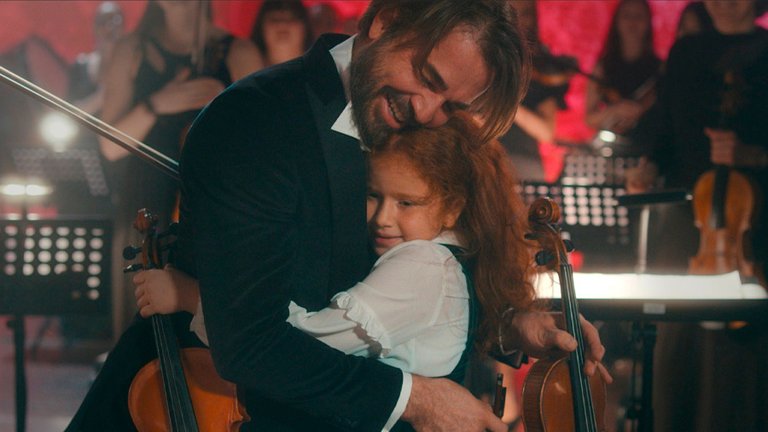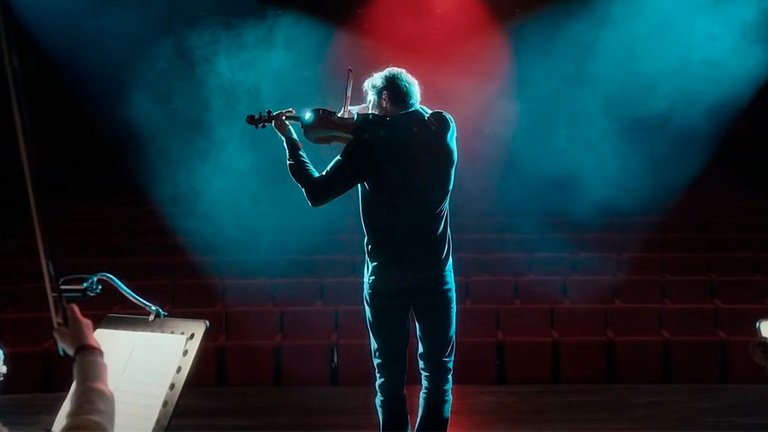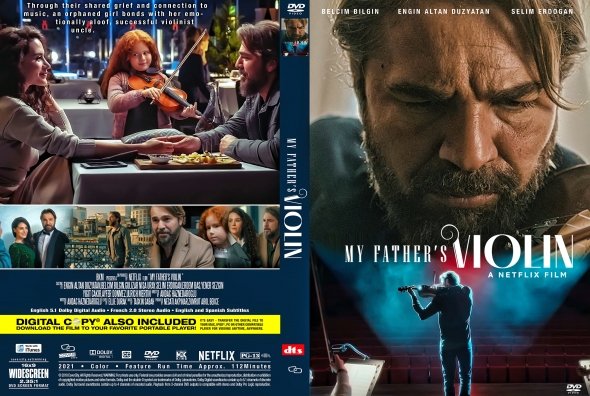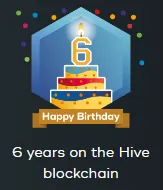Cine TV Contest #101 - "𝕄𝕪 𝔽𝕒𝕥𝕙𝕖𝕣'𝕤 𝕍𝕚𝕠𝕝𝕚𝕟", A Paradigm Shifting Journey.

“My Father's Violin” is, without a doubt, a moving film that transcends mere storytelling. It invites us to explore the depths of human emotions, memories and the transformative power of art. Through its evocative narrative, this cinematic gem orchestrates a symphony of shifting belief systems based on our experience, where we judge without having all the cards on the table. It resonates with viewers on multiple levels, according to the set of beliefs and values that affect how an individual perceives reality and how they respond to that perception.
- Generational perspectives: The film bridges the gap between generations, weaving together the past and the present. When the protagonist “Engin Altan Düzyatan” is reunited with his brother's violin, which as a child had been his, he discovers not only an instrument but a vessel of memories. The violin becomes a conduit for dialogue across time, challenging conventional notions of lineage, brotherhood, and inheritance. It reminds us that the stories of our ancestors are engraved in our souls, waiting to be interpreted. Likewise, Gülizar Nisa Uray, who inherits his father's “violin”, an instrument that becomes a means of solace, discovers the rawness of life and understands one of his father's last lessons: “the musician must have the ability to interpret the rhythm, the mood of his audience”.

- Art as catharsis: The violin, once silent, becomes the voice of repressed emotions. Its haunting melodies evoke pain, joy, and longing. Through music, the protagonist (Mehmet) confronts his own pain, reconciling with memories of loss and love. The film underlines how art, whether through music, painting or literature, can heal wounds, allowing us to release repressed emotions and find solace, to find freedom.

- Rediscovering identity: The violin's journey parallels the protagonist's search for identity. As he traces his origins, he uncovers family secrets and hidden narratives. The violin becomes a mirror that reflects not only his lineage but also his own sense of identity. In this exploration, she sheds social expectations and embraces authenticity, “a paradigm shift from conformity to self-discovery”. Her niece Özlem, as an orphan, encounters a terrible reality, that life is full of Allegros ⇋ Adages ⇋ Rondos; that is: joy, sadness, pain, “high, middle or low moments…”

- Timelessness versus ephemeral moments: the film juxtaposes the eternal resonance of music with fleeting moments. The timeless melodies of the violin connect generations, but its physical decay reminds us of transience. Through this duality, the film challenges our fixation on the past or the future, urging us to savour the present, “a shift from seeing and judging, from nostalgia to the full realisation of being human…”

- Interconnectedness: The violin's journey weaves together lives “past, present and future”. It touches strangers and ignites its own transformative experiences. The film celebrates the interconnectedness of humanity and emphasises that our stories resonate beyond individual boundaries. This canon shift invites empathy and compassion.
In the quiet notes of “My Father's Violin”, we find echoes of our own lives, the emotional shifts we encounter, the melodies that shape us and the timeless threads that bind us together. As the scenes progress and emotions intertwine, we realise that art, like life, is a symphony, an ever-evolving composition that transcends time and leaves an indelible mark on our souls.

“My Father's Violin” is a Turkish film that finds in music the point of connection between the protagonists. In context, the plot deals with the peculiar relationship between a successful violinist, Mehmet, and his orphaned niece, Özlem. Through their shared pain and passion for music, they forge a deep and emotional bond. To understand the “paradigm” shifts in attitude, I can tell you without spoiler:
Paradigm Shift in the Family Relationship: | Mehmet and Ali Riza, brothers, separated due to a past episode. | Despite their differences, Ali Riza seeks out Mehmet to ask him to look after his daughter Özlem. Music and family responsibility change his perspective. |
| Personal Discovery Through Music: | Mehmet lives a quiet life as a famous violinist. | Through Özlem, Mehmet embarks on a journey of musical and emotional discovery. Music becomes a bridge between them. |
Healing and Forgiveness: | Mehmet holds a grudge against Ali Riza for the past. | He discovers that his brother sacrificed himself for him and finds healing. Music and family love play a crucial role. |
Last but not least, the soundtrack of “My Father's Violin” is a significant element in the film. The notes and rhythms of Vivaldi, specifically “The Four Seasons, Concerto No. 4 in F Minor, RV 297 «Winter»”, make us vibrate in that mosaic that lifts us up, brings us down and balances us. A beautiful sensation for those who, like me, love classical music. I leave it below for your delight.
I invite you friend @lecumberre, @mllg, @irvinc and @atreyuserver, to expose an iconic film, following the guidelines in the challenge hosted by @cinetv in their challenge:
Cine TV Contest #101 — Movie That Has a Life-Changing Moment
CREDITS:
Images: all images are of public holding and are taken from the same videos that were published in this post.
Title: CoolText
All assembly was done with Microsoft Office 365 Pro 2023 PowerPoint on Windows 11 Pro.


Hermosa historia y la lectura ha sido continua y sin aburrimiento, ya me animo a buscar la película y disfrutarla.
!gifs love!
Via Tenor
!pimp
Voy corriendo a Netflix!!!!!